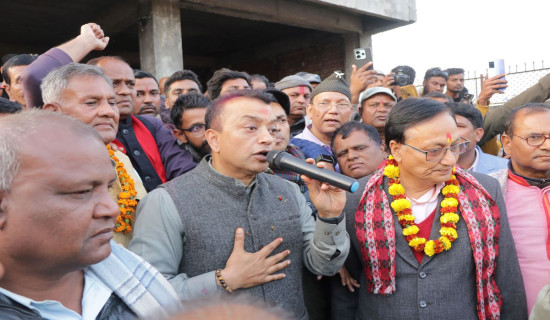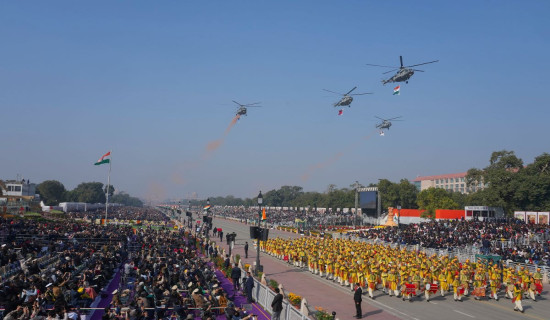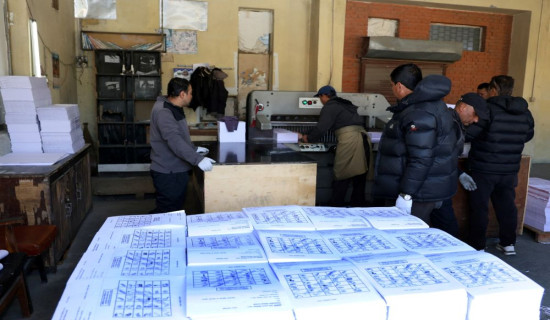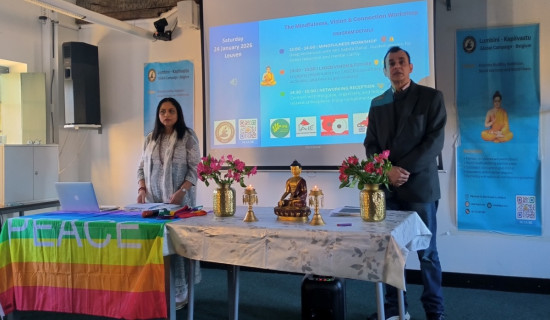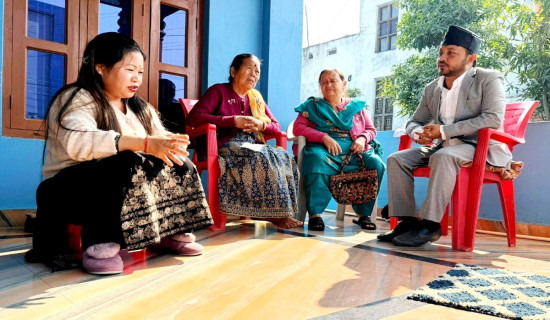- Tuesday, 27 January 2026
'Sustainability of trade requires global attention'
By A Staff Reporter,Kathmandu, Jan. 12: Deputy Prime Minister and Finance Minister Bishnu Prasad Paudel has said that as climate change and trade sustainability are global issues rather than specific to any particular country, all countries should work together to solve them.
Inaugurating the Nepal third annual conference on “Climate Change and Trade Sustainability in South Asia” organised by the World Trade Organisation (WTO) and Kathmandu University in the capital on Saturday, DPM Paudel said that as Nepal is at high risk of climate change, its impact is clearly visible in the economic, social and infrastructure development sectors.
He said that it is necessary to develop low-risk trade infrastructure and diversify the supply chain by decentralising production centres.
He said that this conference will provide a great support to policymakers, researchers and private sector representatives to discuss the challenges created by climate change in South Asian countries and the strategies to be taken in the coming days.
He said that as Nepal's role in climate change is insignificant compared to the impact of climate change on Nepal, it is necessary to prioritise the efforts made by Nepal to reduce climate emissions and adapt to it as much as possible with its own resources and means.
He said that it is necessary to take action in the process of climate-friendly development, taking into account the disruptions in the supply chain caused by natural disasters such as floods, landslides and earthquakes that occur annually in infrastructure structures built with large investments.
DPM Paudel said that this conference will be useful in addressing the issue of climate change for the sustainability of international trade, as climate change has had an adverse impact on international trade, which is the engine of economic growth.
Stating that climate change poses challenges to economic growth, sustainability and food security in the South Asian region, which is an important part of the global economy, the DPM said that the impact of climate change should be very vigilant as it could create greater economic and social disparities.
As South Asia is an important part of agricultural production and trade, he said that it is necessary to formulate an effective implementation strategy for climate smart agriculture to address the challenges that have arisen and may arise in the agricultural sector due to climate change.
He said that international partnership and cooperation are equally necessary to mitigate the impact as climate change will also affect the production, development and inter-regional trade of clean energy, which has great potential.
Registrar of Kathmandu University Professor Dr. Achyut Wagle said that private sector-friendly sustainable economic development is necessary, as it will contribute to future sustainable development.
“If the entirety of the economic ecosystem is not sustainable, trade sustainability is not easily achievable goal. However, when it comes to the issue of trade sustainability, we are not only looking at the production, supply chain, conveyance, transportation system and the climate disruption caused by the extreme climate events,” he said.
“Nepal has posited or huge hope on export of hydropower but looking at the impacts of climate change, there is reduced flow of water in the rivers. So we are somehow facing a precarious future if we do not take some urgent actions today,” said Wagle.
Xiangchen Zhang, deputy director general of WTO, said that the multilateral trading system has helped lift over 1.5 billion people out of absolute poverty and helped create millions of jobs in goods and services trade all over the world.
“I invite stakeholders to consider engaging in a potential environmental goods and services agreement which may be limited in scope but it will help advance the green transition and fight climate change,” said Zhang. “In addition, the capability of AI, precision farming and innovative water science to contribute to food security and sustainable agriculture could bring us towards agreements that ensure a nourished and sustainable future,” he said.
Dr. Pinar Artiran, Director of the Research Centre for International Trade Law and Arbitration Law, Istanbul University, said that Nepal should advance trade by keeping climate change and environmental sustainability in mind.
On the occasion, Joint Secretary at the Ministry of Industry, Commerce and Supplies Devraj Joshi, expressed the view that Nepal should move forward towards sustainable trade by addressing the problems and challenges in the fields of trade and climate change.
"We have moved forward in the mobilisation and management of resources targeting climate change and sustainability,” Joshi said. “Study and research helps in promoting trade through policy formulation and action plans.”
The conference is hosted by WTO Chairs Programme - Nepal at Kathmandu University School of Management in collaboration with WCP – India, Centre for Trade and Investment Law (CTIL), Indian Institute of Foreign Trade (IIFT), New Delhi, India and Faculty of Management, Purbanchal University, Biratnagar, Nepal.
Representatives from nine countries, including India, China, Turkey, Bangladesh, and Indonesia are participating in the two-day conference.

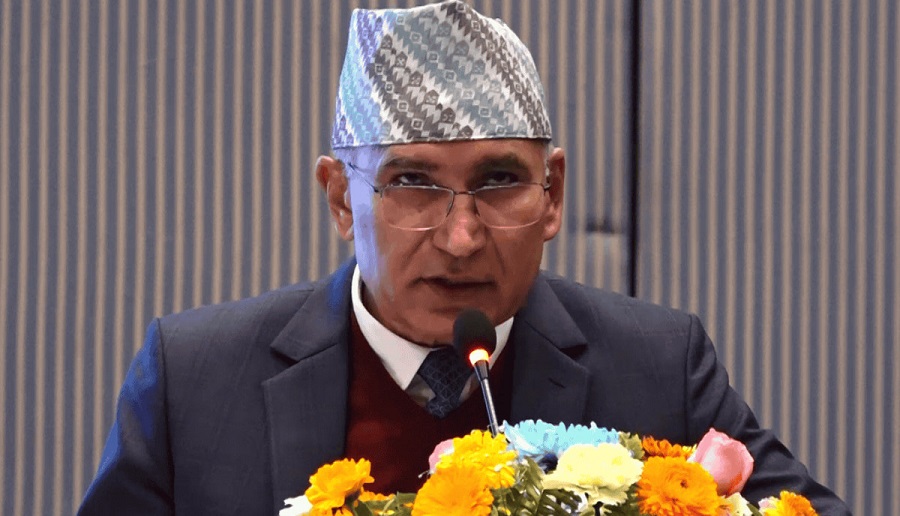

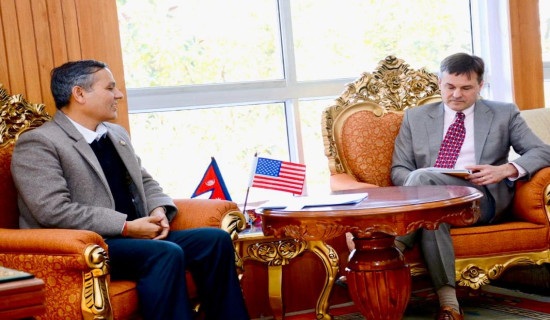
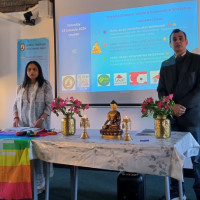
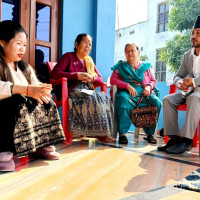
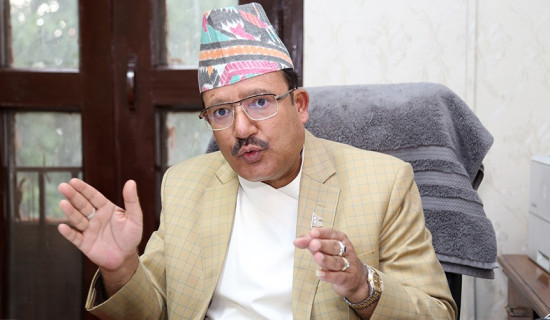
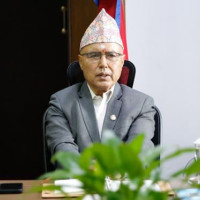
-square-thumb.jpg)
